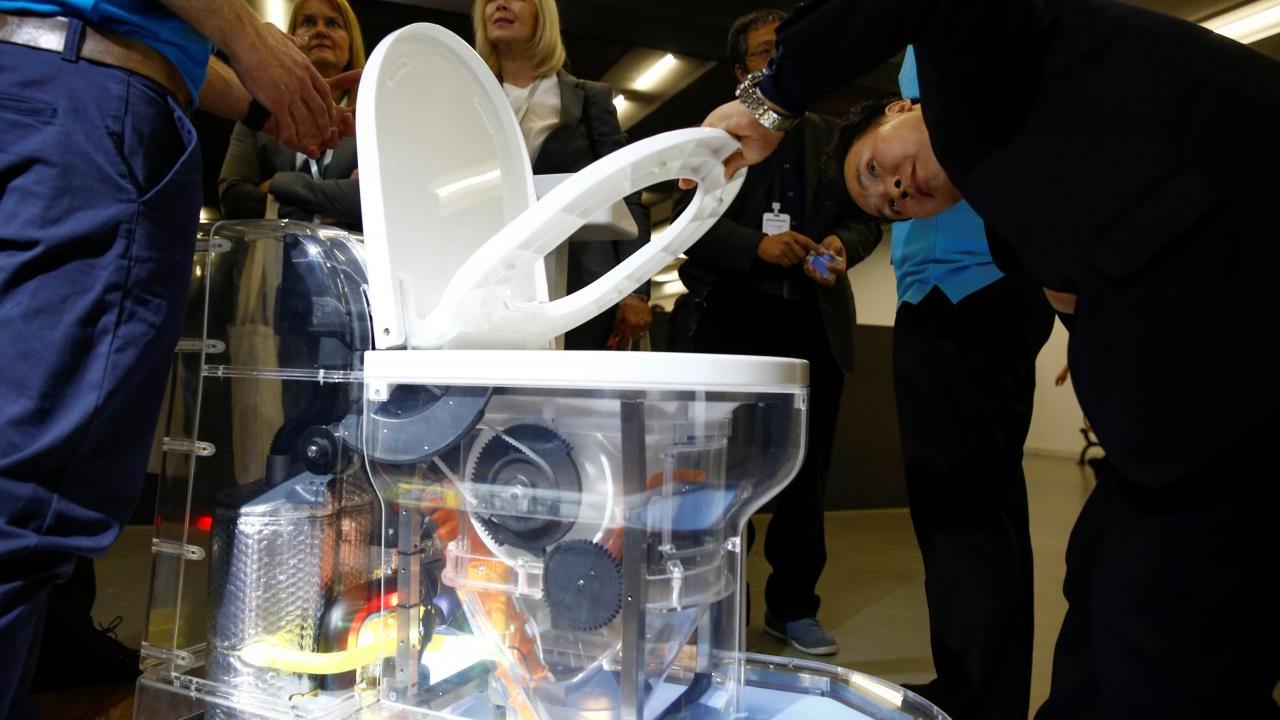Bill Gates, co-founder of Microsoft, has unveiled a futuristic toilet that uses chemicals to turn human waste into fertilizer. Gates unveiled that toi
Bill Gates, co-founder of Microsoft, has unveiled a futuristic toilet that uses chemicals to turn human waste into fertilizer. Gates unveiled that toilet at a trade event in Shanghai, China, where he lauded the globalised and free trade systems that made the toilet technology possible. He explained that the toilet does not need water or sewers.
“I honestly believe trade allows every country to do what it’s best at. So when I talk about components of this toilet being made in China, others in Thailand, others in the U.S, – you really want to be bringing together all of that IQ so that you’re getting that combination,” Gates said.
The toilet, which Gates said was ready for sale after years of development, is the brainchild of research projects funded by the Bill and Melinda Gates Foundation.
“The current toilet simply sends the waste away in the water, whereas these toilets don’t have the sewer. They take both the liquids and solids and do chemical work on it, including burning it in most cases.”
He compared the change from traditional toilets to waterless models as similar to the computing revolution around the time he founded Microsoft in the 1970s.
“In the way that a personal computer is sort of self contained, not a gigantic thing, we can do this chemical processing at the household level,” he said.
Gates’ foundation has committed about $200 million to the toilet project and expects to spend the same amount again before the toilets are viable for wide-scale distribution.
“This year the volume of toilets will literally be in the 100s while people are still kicking tires (testing them),” he said.
Gates said the next step for the project is to pitch the concept to manufacturers, saying he expects the market for the toilets to be over $6 billion by 2030.


